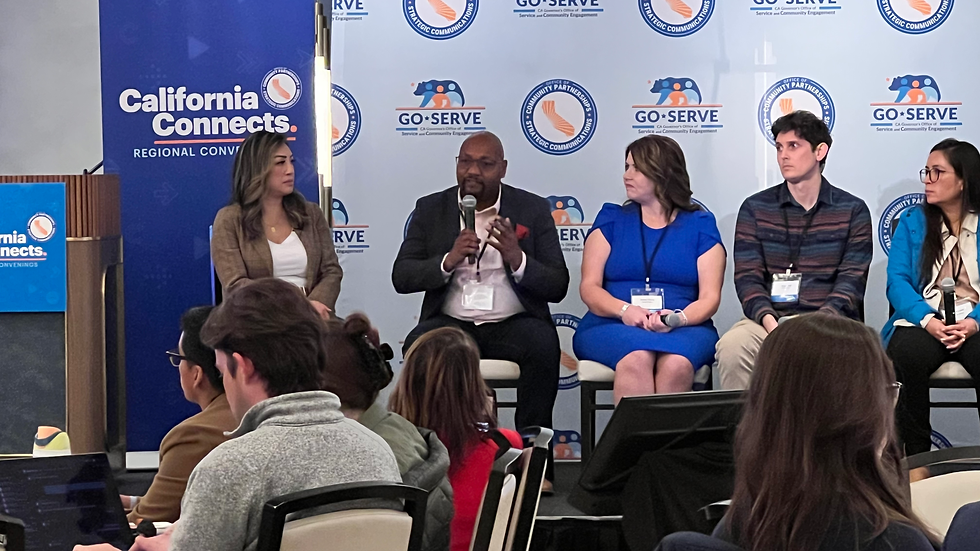California Officials Challenge Huntington Beach's Voter ID Law in Appeal
- The ONME Newswire

- May 29
- 3 min read
Updated: Jun 19
By ONME Newswire
In a decisive legal battle over voting rights in California, Attorney General Rob Bonta and Secretary of State Shirley N. Weber, Ph.D., are taking a strong stance against Measure A, a local voter identification law introduced by Huntington Beach. This law, set to take effect in 2026, requires voters to present identification at polling places without demonstrating any evidence of fraudulent voting in the city. The lawsuit, filed in April 2024, argues that the law contradicts state regulations governing electoral integrity.
Background of Measure A
Measure A gained traction among Huntington Beach residents who argued that voter ID laws are necessary to ensure fair elections. However, California's approach to voting has long emphasized that elections are both fair and secure without such requirements. For instance, the state conducted an extensive review of the 2020 elections, revealing that less than 0.0025% of ballots were flagged for potential fraud. This minuscule number raises questions about the necessity of Measure A, particularly with no substantiated cases of voter fraud reported in Huntington Beach.
In their lawsuit, Bonta and Weber asserted that Measure A contradicts state law, which governs election procedures and protects the right to vote. While charter cities can manage local affairs, state regulations surrounding voting rights must remain consistent and take precedence.
The Appeal Process
After a lower court ruling on April 7, 2025, denied their petition to invalidate Measure A, Bonta and Weber set their sights on appealing to the California Fourth District Court of Appeal. This appeal goes beyond a localized legal challenge; it aims to uphold the integrity of California's electoral system.
“It is not just about Huntington Beach. This is about protecting rights across California,” Bonta emphasized when announcing the appeal. The outcome of this case has the potential to influence how local laws can interact with statewide electoral standards.
Arguments Against Measure A
The core argument against Measure A is its push for voter identification without evidence of fraud in Huntington Beach. Bonta remarked, “Municipalities should not be allowed to defy state laws in the name of solving nonexistent problems.” This perspective is shared by many who believe that voter ID laws pose unnecessary barriers, particularly for marginalized communities.
According to a study by the Brennan Center for Justice, states with strict voter ID laws saw a 10% drop in voter turnout among low-income populations. This statistic highlights how those lacking identification—often low-income individuals and people of color—could face additional obstacles, sidelining their voices in the democratic process.
Legal Framework and Constitutional Rights
The foundation of this case lies within the context of federal and state constitutional rights. The Voting Rights Act and various state laws ensure that citizens have the right to vote without excessive burdens. Bonta and Weber argue that Measure A seeks to undermine these protections by imposing local requirements that infringe upon citizens' rights.
Their position emphasizes that any law affecting voter participation must be backed by solid evidence. In the absence of documented fraud, the introduction of Measure A appears to lean towards creating roadblocks for eligible voters instead of enhancing the validity of elections.
Public Reaction
Reactions from the public have been mixed. Some residents support Measure A, viewing it as a way to enhance trust in the electoral process. Conversely, many see it as an unnecessary and discriminatory initiative that could deter voters.
This division reflects a broader national dialogue surrounding voter ID laws. As states strive to find a balance between ensuring electoral integrity and protecting voting rights, the Huntington Beach case exemplifies the complexities involved.

Future Election Implications
As the appeal progresses, the implications could reach far beyond Huntington Beach to impact future elections throughout California. A ruling in favor of the state's position would affirm the principle that local jurisdictions cannot enact laws that compromise state-wide voting rights.
Furthermore, a decision against Measure A might discourage other Californian cities from adopting similar voter ID laws. This change could lead to a more streamlined approach to election practices across the state, reinforcing public trust in California's electoral processes.
What's Next
The challenge to Measure A encapsulates a vital conversation about voting rights within California's legal framework. With Attorney General Rob Bonta and Secretary of State Shirley N. Weber leading this legal effort, the state aims to uphold the essential right to vote against measures perceived as restrictive.
As developments unfold, citizens and lawmakers will keep a close eye on how this legal battle may shape the future of voting laws in California. The outcome has the potential to significantly impact electoral integrity and access to voting, underscoring the importance of equitable voting rights in a thriving democracy.









Comments